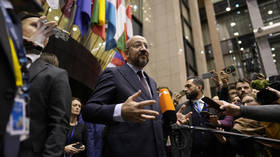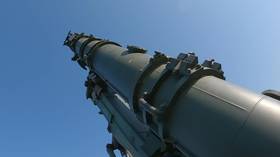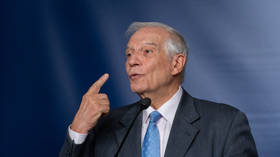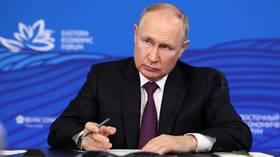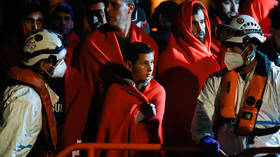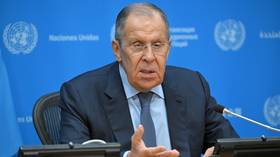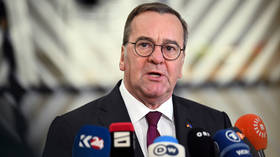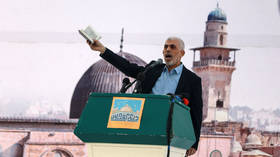Scholz takes credit for ‘unanimous’ EU Ukraine vote
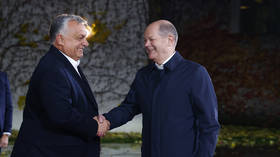
German Chancellor Olaf Scholz convinced Hungarian Prime Minister Viktor Orban to leave the room where the bloc’s leaders were voting on whether to open negotiations with Ukraine about joining the EU, he confirmed to reporters on Saturday, admitting the controversial tactic could not serve as a “universal solution.”
Scholz had told Orban “he should consider leaving the room briefly,” perhaps to “go grab a coffee outside” as negotiations over Ukraine’s accession to the EU dragged into a third hour in Brussels on Thursday, according to Politico. The absence of the Hungarian prime minister, a staunch opponent of EU membership for the nation he has described as “one of the most corrupt countries in the world,” allowed the bloc’s remaining members to approve the motion with the appearance of unanimity.
While some criticized what they warned could set a dangerous precedent for moving forward on critical decisions without the backing of all EU members, inside sources described Scholz’s face-saving tactic to Politico as “pre-agreed” and argued it had been deployed in a “constructive manner.”
The chancellor acknowledged the criticism, admitting, “things can’t be solved every time by leaving the room. This is for exceptional cases, like for example, the decision that we have just made.”
European Council President Charles Michel finally announced the opening of accession talks with Ukraine and Moldova after eight hours of debating, framing the decision as “a very powerful political message” and expressing optimism that the bloc would be able to overcome Hungary’s opposition to their plans for Ukraine going forward.
While Orban had previously threatened to scuttle Ukraine’s accession with a “hard veto,” he settled for blocking a proposed four-year EU financial plan that would have provided €50 billion ($54 billion) in long-term financial aid to Ukraine and criticizing the accession talks as “completely senseless, irrational and incorrect.”
“Hungary does not want to be part of this bad decision!” he wrote on Facebook after EU leaders announced their victory.
Orban’s government has warned that Ukraine’s rampant corruption, total dependence on foreign aid and involvement in an ongoing conflict should disqualify it from EU membership. Slovakia and Austria have also argued against fast-tracking membership, and while neither attempted to block Thursday’s vote, Slovak Prime Minister Robert Fico described the country as “absolutely unprepared to open the negotiations” for membership.
Orban denied allowing the EU vote to proceed in exchange for Brussels releasing €10 billion of the €30 billion in funds the bloc had frozen last December over Budapest’s alleged failure to comply with the EU Charter of Fundamental Rights.
